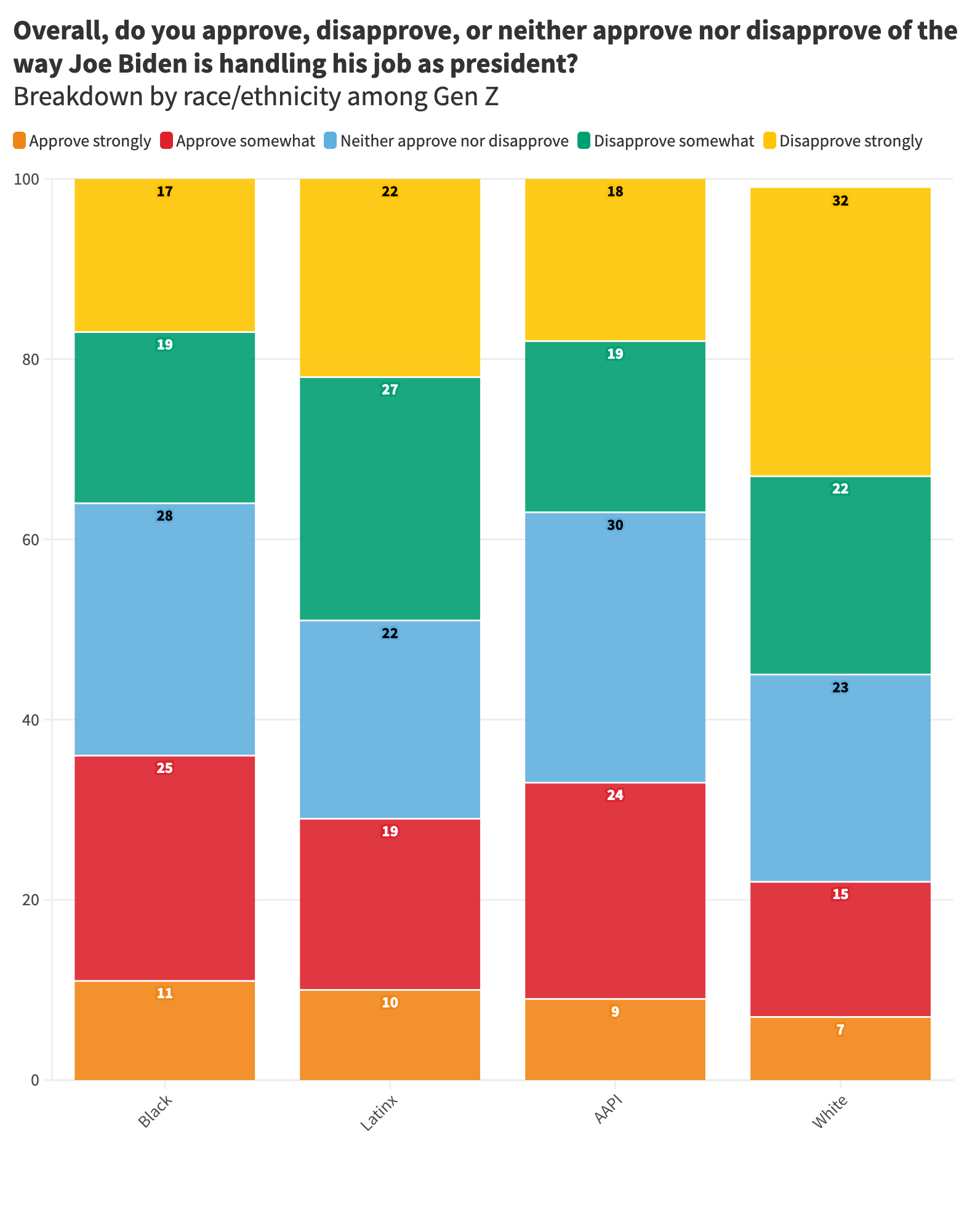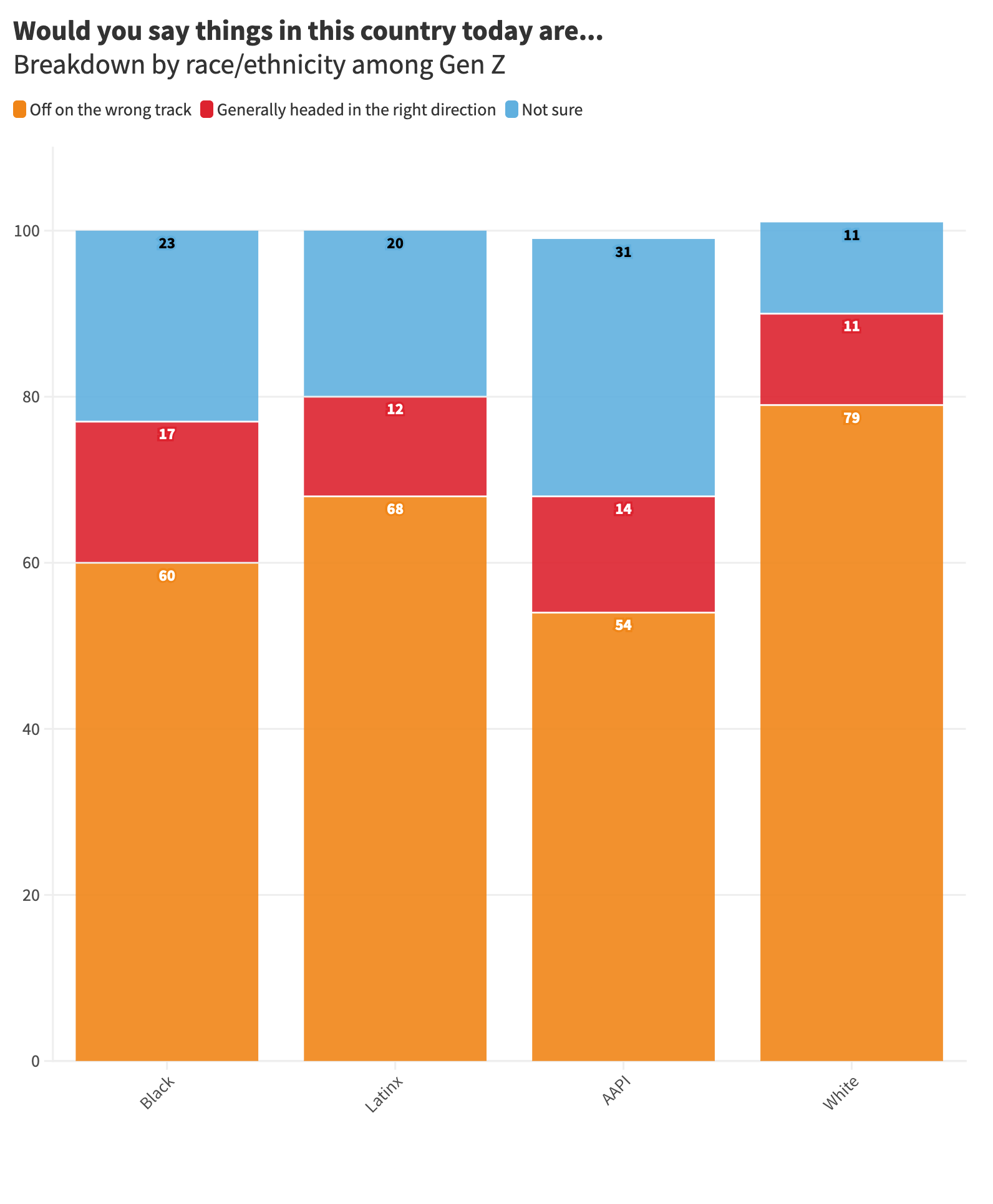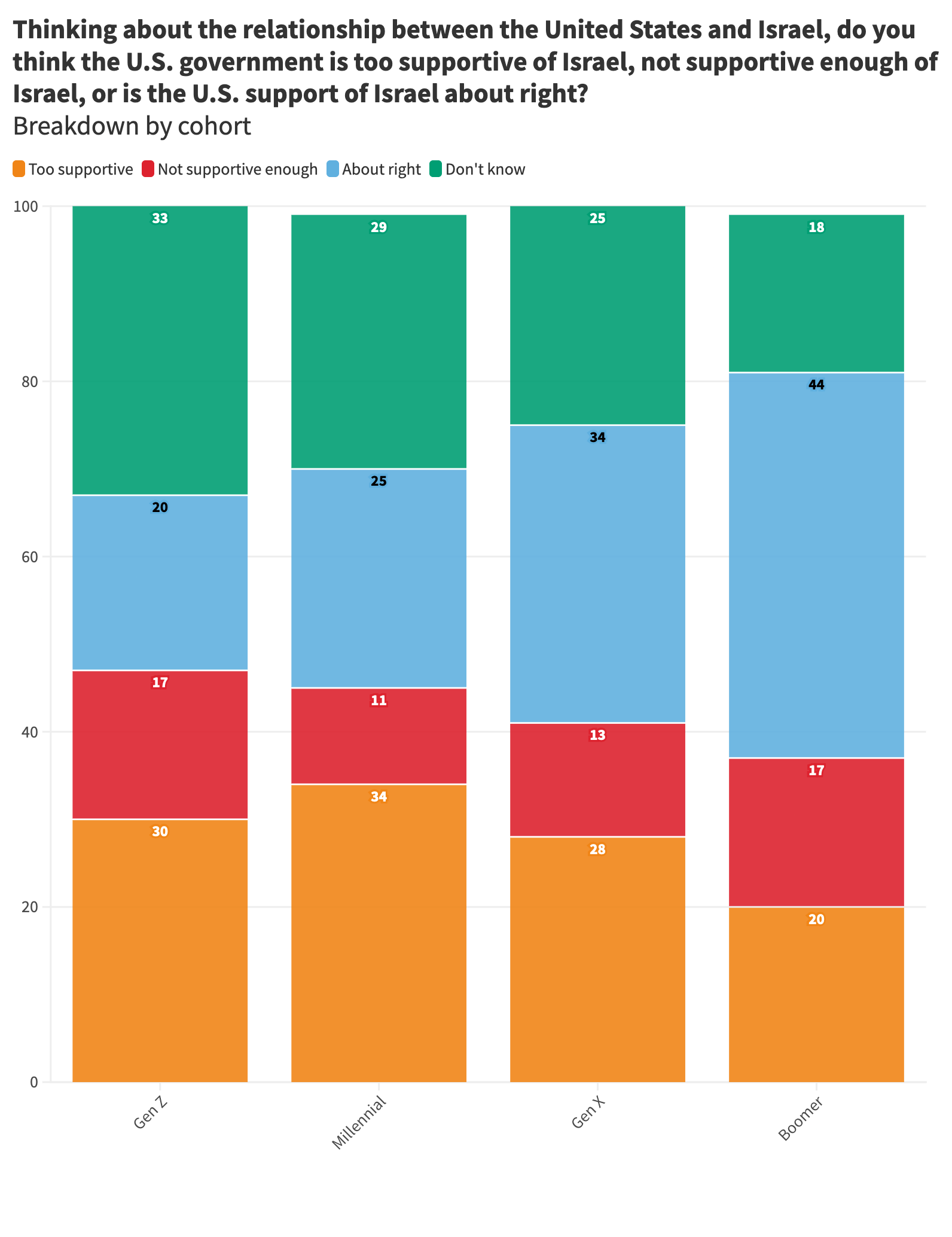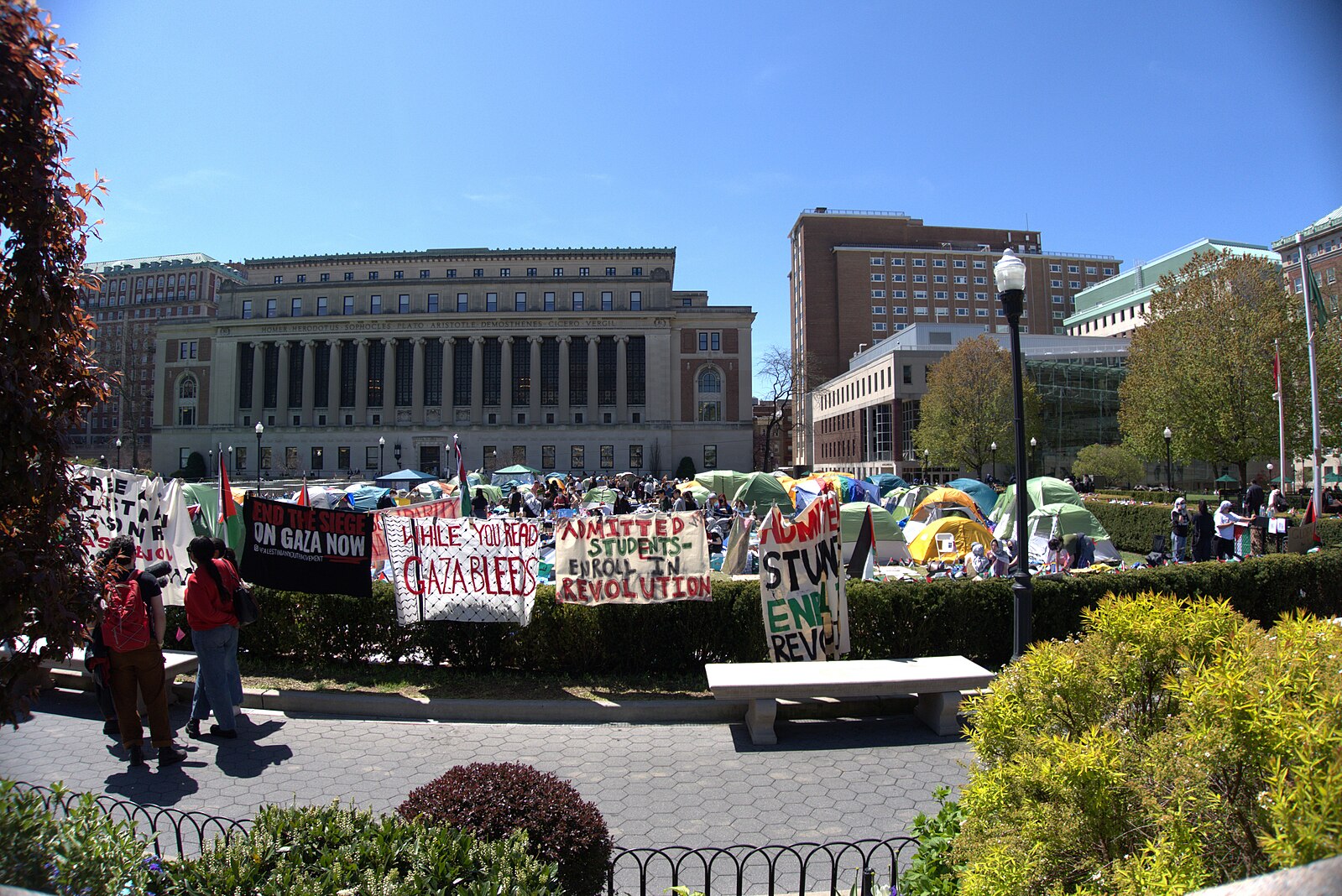By Diane Wong
May 3, 2024
Hundreds of thousands of voters across the country cast their ballot for no candidate in the Democratic primaries on Super Tuesday, choosing to vote uncommitted in protest of President Biden’s handling of Israel’s war on Gaza, which has left 34,535 people dead and 77,704 wounded including more than 14,500 children and 8,400 women. These numbers are likely higher and do not account for the millions of Palestinians who have been repeatedly displaced in the region. What began in Michigan as a grassroots campaign to call for a permanent ceasefire in Palestine has turned into a national movement, reshaping Democratic primaries in nearly two dozen states. In a historic turn of events, the protest votes in Missouri, Massachusetts, Washington, Rhode Island, Michigan, Minnesota, and Hawaii will send a combined 27 uncommitted delegates to the Democratic National Convention in August. At the forefront of the movement are Gen Z students, activists, and voters.
According to recent polls, the majority of Americans disapprove of Israel’s ongoing violence in Gaza and this is especially so for Gen Z voters. The disconnect between Gen Z and elected officials on the conflict has become ever more apparent, especially as campus protests for divestment sweep the country at the same time as Congress passes a foreign aid package that provides an additional $26 billion for Israel.

Our latest GenForward data reveals that 36% of Black, 49% of Latine, 37% of Asian American, 54% of white Gen Z voters disapprove of the way President Biden is handling his job as president. Additionally, 60% of Black, 68% of Latine, 54% of Asian American, and 79% of white Gen Z voters believe that things in the country are off on the wrong track.

The uncommitted protest vote was an early strategy in Palestine solidarity activism in the United States. The Listen to Michigan campaign was initially created by Gen Z activists from Dearborn, Michigan, a city near Detroit with the highest population of Arab and Muslim Americans in the country. The campaign brought together multi-racial, multi-faith, and multi-generational organizers with the goal of getting 10,000 uncommitted votes—the margin that former President Trump won the battleground state in 2016. The results far exceeded expectations: 101,000 Michigan voters chose uncommitted on their ballots and thousands of voters in other states chose to do the same. Abbas Alawieh, spokesperson and Democratic strategist for the Listen to Michigan campaign, said at a watch party in Dearborn, “We have led a movement that is far exceeding expectations, using the ballot box to urge America to stop killing our families. That’s all we’re asking for. Just stop killing our families.”

The campaign demonstrates the political power of Gen Z voters and activists, whose call for a permanent ceasefire in Gaza has also meant divestment from Israel and demanding an end to U.S. foreign aid, including military support, to Israel. Latest Genforward data reveals a generational divide between support for Israel or Palestine, with younger generations less supportive of Israel than older generations. In fact, 30% of Gen Z and 33% of Millenial voters expressed that the United States is too supportive of Israel as compared to only 12% of Boomers. In addition, one third of Gen Z voters believe that the U.S. government is too supportive of Israel and not supportive enough of Palestine.

When asked about their preferred outcome of the conflict, Gen Z overwhelmingly disagreed with the idea of full Israeli control of Gaza. Although Gen Z are not single-issue voters, this is an issue that will surely influence young voters come November, many of whom are already organizing on their college campuses and becoming increasingly vocal in their opposition to the genocide happening in Gaza.

At college campuses across the country, students are setting up encampments and attending protests in solidarity with Palestinians and some for the very first time—igniting a surge of anti-war activism not seen since the Vietnam War. On April 18, over 100 students were arrested on campus at Columbia University during a pro-Palestinian rally by the NYPD. The students who were arrested include Isra Hirsi, the daughter of Minnesota Rep. Ilhan Omar, and others who shared that they were subsequently evicted from their dorms and suspended. In the same week, the University of Southern California announced that over safety concerns it had canceled plans for a commencement speech by this year’s valedictorian Asna Tabassum, who is Muslim and has been vocal in her support for the human rights of Palestinians. Pro-Palestinian encampments have been set up at over 100 college campuses across the country, including at Cal Poly Humbolt, City College of New York, Virginia Tech, University of Texas Austin, Emory, Portland State University, Princeton, and others. While students at Brown reached an agreement with the university to disband the encampment after the university voted on a divestment resolution, many others are being threatened with expulsion.

Top university administrators have called on heavily militarized cops, state troopers, and riot police to subdue the activists, leading to mass arrests and excessive use of force on both students and faculty—videos circulating online show law enforcement officers using tear gas, tasers, zip ties, batons, rubber bullets, chokeholds, fists, and other assault tactics. On April 30, hundreds of NYPD officers marched to City College of New York and Columbia University and arrested 282 students, including student journalists at WKCR who took over Hind’s Hall (formerly Hamilton Hall). One WKCR reporter said while being dragged out of the building, “No one here is left to document what happens at Hamilton Hall.” In California, students at the UCLA encampment were met with a violent mob with no affiliation to the university, videos circulating online show students bracing tear gas canisters and explosives for hours into the night without a response from the administration.

Yet, this violence has been met with care. At each encampment we are witnessing young activists build alternative infrastructures, institutions, and programs for themselves on campus that reflect an abolitionist liberatory politics rooted in community care—freedom libraries, free breakfast, medical care, teach-ins, accessible housing, mutual aid, and other forms of support. On the ground, we are also witnessing the interconnected struggles between the Black and Palestinian freedom movements, activists who since the Ferguson protests, have continued to share knowledge and tactics for things like how to recover from tear gas. From the pandemic to the ongoing war in Gaza, Gen Z are living in a state of multiple crises.
”But if times of crisis have taught us anything, it is that young people are poised to make a difference starting on their campuses—sites of higher learning that have necessarily turned into insurgent sites of experimentation and radical futuring.

The GenForward Survey is associated with the University of Chicago. The November 2023 survey responses were collected from November 8 to 20, 2023, among a nationally representative sample of 3,448 adults 18+ representing the 50 states and the District of Columbia. The overall margin of error is ±2.94 percentage points at the 95 percent confidence level.
Diane Wong is an Assistant Professor in the Department of Political Science at Rutgers University, Newark. Learn more about Diane & the GenForward researchers here.

